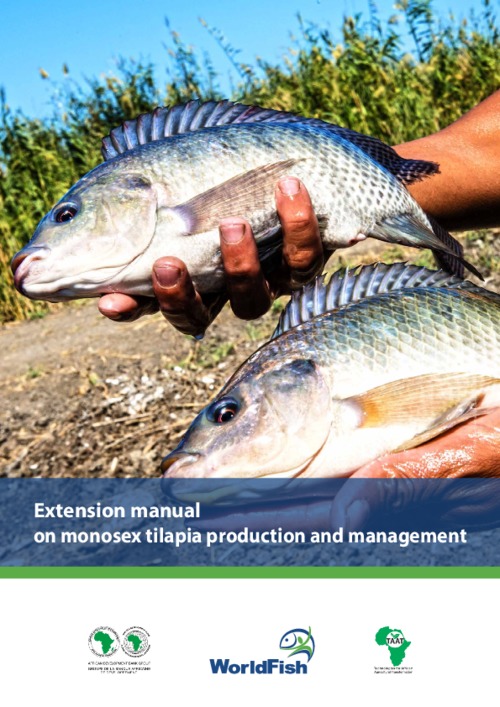Extension manual on monosex tilapia production and management

Technologies for African Agricultural Transformation (TAAT) is a framework developed by the African Development Bank as part of its efforts for agriculture development on the continent. It aims to enhance the use of proven agricultural technologies among stakeholders to foster the changes needed through farm-level productivity and value chain development. Aquaculture is one of the nine commodity compacts with proven technologies that have the potential to increase yields and benefits for upscaling in 12 countries in Africa: Benin, Burundi, Cameroon, Cote d’Ivoire, Democratic Republic of Congo, Ghana, Kenya, Malawi, Nigeria, Tanzania, Togo and Zambia. Led by WorldFish, the TAAT Aquaculture Compact has been training aquaculture subject matter specialists and youth agripreneurs as facilitators under capacity development and technology outreach. The CGIAR Research Program on Fish Agri-Food Systems (FISH) led by WorldFish is developing the better management practice (BMP) guidelines at the global level and contextualized BMP resources at the country level to support sustainable farming of genetically improved farmed tilapia (GIFT) in WorldFish focal and scaling countries. This BMP manual, produced as part of this approach, aims to enhance the capacity of tilapia fish breeders, grow-out fish farmers and extension service providers in Africa to support scaling of tilapia production. Extension manual on monosex tilapia production and management is a guide to assist extension workers and other trainers in facilitating and delivering improved technologies to tilapia breeders for profitable ventures. The learning materials have been packaged for different hatchery and nursery staff to acquaint themselves with the knowledge and skills necessary to run a successful hatchery operation. Development objective are: i. to enhance the productivity of tilapia ii. to increase farmers’ income iii. to improve food (fish) security and nutrition. Learning objectives are: i. to enhance knowledge on broodstock selection, management and artificial breeding methods ii. to acquire experience of BMPs in a hatchery for increased productivity iii. to build entrepreneurial skills in business plan development for a sustainable hatchery venture iv. to learn skills on how to share knowledge with other hatchery operators and fish farmers in their respective areas for increased tilapia production.
Permalink
Date Available
Type
Publisher
Countries
Copyright
CC-BY-NC-4.0
Research Themes
Topics
Language